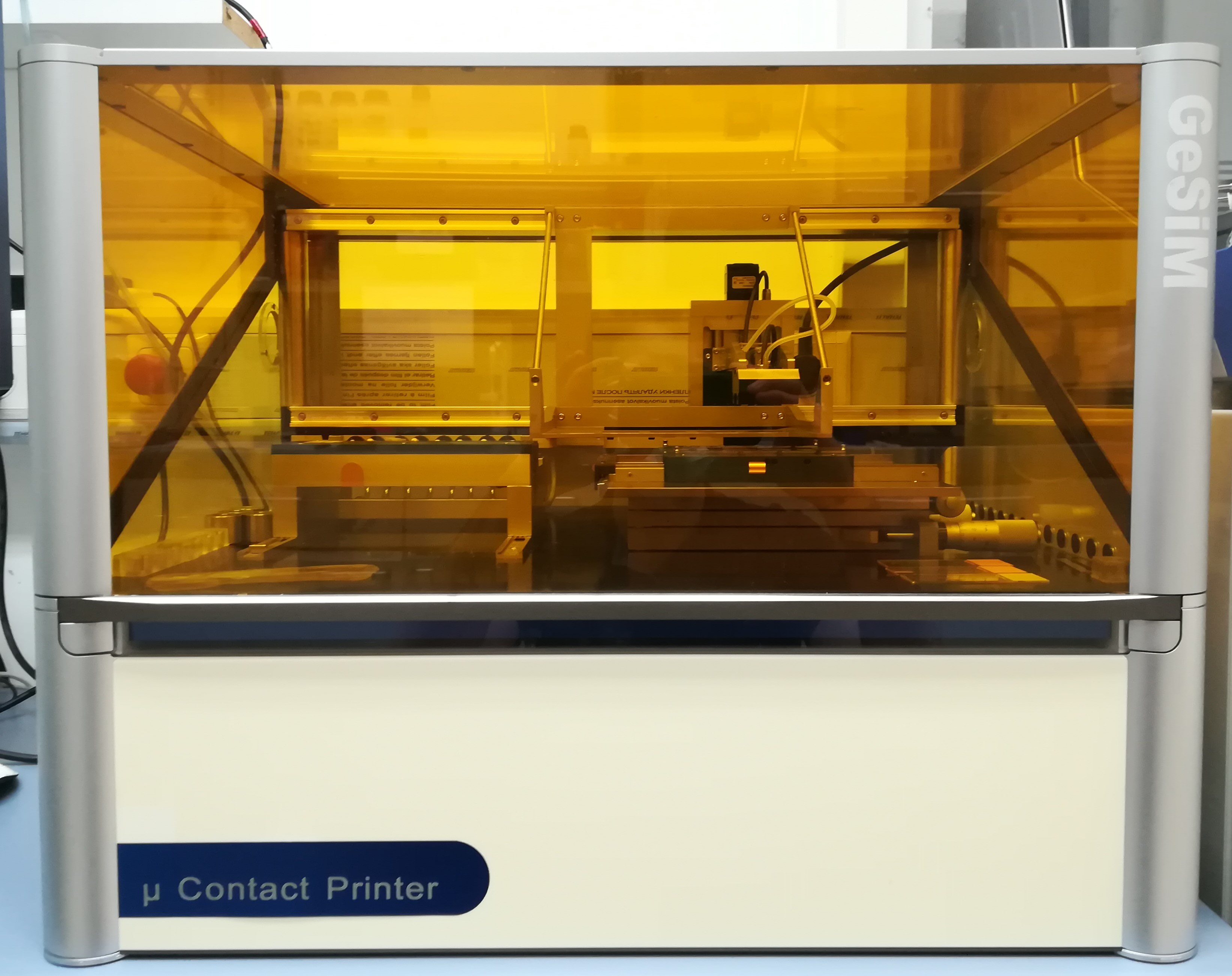
| Manufacturer: | GESIM |
| Facility: | Chair of Materials Science and Nanotechnology | Partner: | TU Dresden |
| Location: | MBZ 403 |
The Micro-contact-Printer is a flexible and half-automated patterning and micro contact printing platform. It offers surface patterning at the submicrometer range. It allows for the creation and use of your own PDMS stamps from your own master.
Micro-contact printing (µCP) does work on the nanoscale: a soft polymer like PDMS (silicone) is cast on a micro- or nanostructured master; the resulting stamp is soaked in sample and pressed onto a surface, thus transferring molecules from the protruding areas. Chemicals, biomolecules, nanoparticles, beads and cells can be printed, which is why µCP is getting popular in the life sciences, e.g. to study the influence of structured matrix proteins or growth factors on growth, differentiation and movement of cells.

| Manufacturer: | GESIM |
| Facility: | Chair of Materials Science and Nanotechnology | Partner: | TU Dresden |
| Location: | MBZ 403 |
The Micro-contact-Printer is a flexible and half-automated patterning and micro contact printing platform. It offers surface patterning at the submicrometer range. It allows for the creation and use of your own PDMS stamps from your own master.
Micro-contact printing (µCP) does work on the nanoscale: a soft polymer like PDMS (silicone) is cast on a micro- or nanostructured master; the resulting stamp is soaked in sample and pressed onto a surface, thus transferring molecules from the protruding areas. Chemicals, biomolecules, nanoparticles, beads and cells can be printed, which is why µCP is getting popular in the life sciences, e.g. to study the influence of structured matrix proteins or growth factors on growth, differentiation and movement of cells.